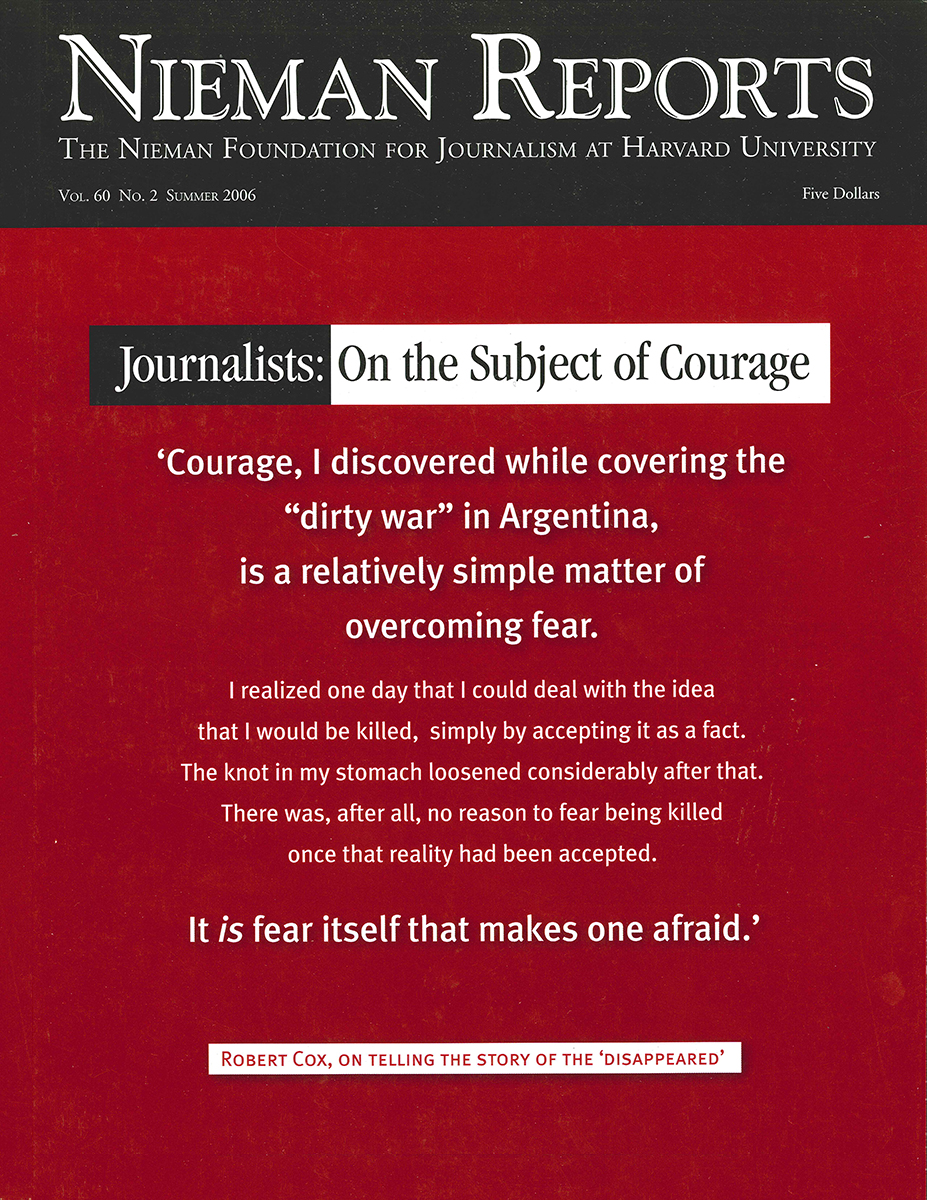Dare’s book was published in 2007 under the title “Guerrilla Journalism: Dispatches From the Underground”Sunday Dare has written a book, “Voices From the Trenches: The Story of Guerrilla Journalism Under Military Rule in Nigeria.” He is now looking for a publisher. In an excerpt, he tells about an incident that happened with The News, an independent magazine in Nigeria. Dare describes the context of this excerpt: “This Gestapo-like raid on The News and Tempo magazines occurred sometime in April 1998 when military dictatorship under the regime of General Sani Abacha was in its most brutal stage. The journalists at The News, Tempo and Tell publications were singled out for attacks, harassment, arrest, unlawful detention, and elimination. This was the height of the Abacha paranoia and journalists were game.”
Seconds after the Peugeot station wagon and a pickup truck came to a suicidal screeching halt, six security agents armed with .45mm rifles flew out. They made straight for the entrance of the newspaper building. With their heavy boots they kicked on the iron doors to crudely announce their presence. In less than five minutes they made a forceful entrance, but not before one of the magazine’s security discretely dispatched a coded message around using the intercom telephone system buried in one of the desk drawers of the security post table. “Move, move or I will shoot,” barked one of the government security men as he ordered the two rattled and visibly frightened guards to lead them to the offices of the editors.
RELATED ARTICLE
“Dictatorship and Democracy Require Different Kinds of Courage”
– By Sunday DareInside the newsroom of The News magazine in Ikeja, central Lagos, Nigeria, reporters, editors and media workers responded simultaneously to the urgent warning passed around. Whenever such sudden movements occurred, especially a security guard rushing into the newsroom breathless, it meant only one thing — the state security agents were around to arrest anyone in sight. As everyone raced towards the secret back exit, many fell face down and were not spared by the others who simply stepped on them to make the final desperate flight to safety. The escape route was narrow and only a few made it. A few editors made it first, helped by the stronger hands, not out of any plan, but out of an understanding that they are the ones the security agents wanted badly. Yet many reporters and administrative staff stood frozen either shocked or unable to comprehend the swift seconds of unfolding dramatic assault and escape from the clutches of the enemy.
As the scramble to safety progressed, the company guards employed delay tactics to provide more time for escape by taking the security goons first to the storage basement and then to other unoccupied offices within the building. Sensing that time was deliberately being wasted, the leader in a fit of rage hit one of the guards on the shoulder with the butt of his gun. “You will be arrested and tortured if the editors escape.” The guard let out a scream of anguish and crumbled to the floor. Notwithstanding, kicks from the jackboots of the other four security men rained on him to teach him a lesson.
Without any more tricks, the second guard, unwilling to go through the same treatment given to his partner, led them into the nearly empty newsroom and the deserted offices of the editors.
Instantly, they knew they had been fooled. Mission unaccomplished, they furiously overturned the tables, ransacked the drawers for documents, and used the butt of their riffles to smash the desktops. In 30 minutes, the hitherto organized newsroom was made to resemble an abandoned abode of a lunatic. Then they turned on the guard, Bello, and gave him some thorough thrashing after which they bundled him unto the floor of the jeep and madly sped way. They also whisked away personnel staff, including the librarian. Just about anyone they saw around.
Six hours after the attack, darkness fell. Ten agents of the dreaded State Security Service moved in to keep a covert surveillance over the premises, in full alert to arrest anyone attempting to access the office. The siege declared on The News was at its highest stage.
Darker nights lay ahead for The News and other media houses. The team rallied, as it had always done after every attack, to strategize. The group met in a safe house somewhere in central Lagos where a mobile newsroom was quickly set up within hours. There was work to do and no time to waste. Idow Obasa, a trained accountant and much-talented general manager of the group, rallied the team. There was no let up. Work continued on the next edition of the magazine. Instructions were issued, and everyone basically knew what to do after several years of similar experiences. It was back to the trenches, and the newsroom was a no-go area. Obasa was a towering figure who combined his accounting duties with an unmatched editorial skill. He was on call as always and ensured that the publications — The News and Tempo — stayed on the streets during the darkest days of the siege against the media.



